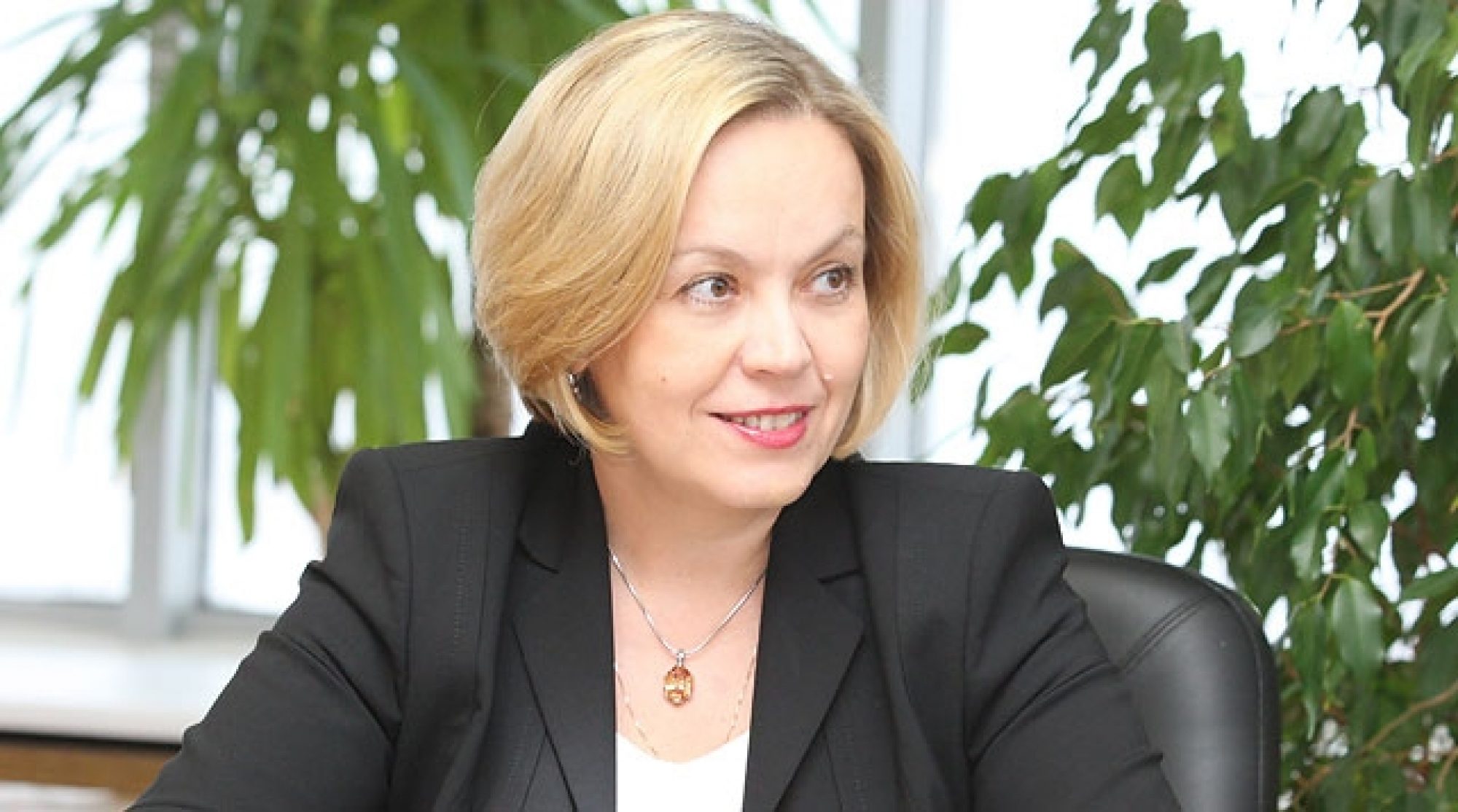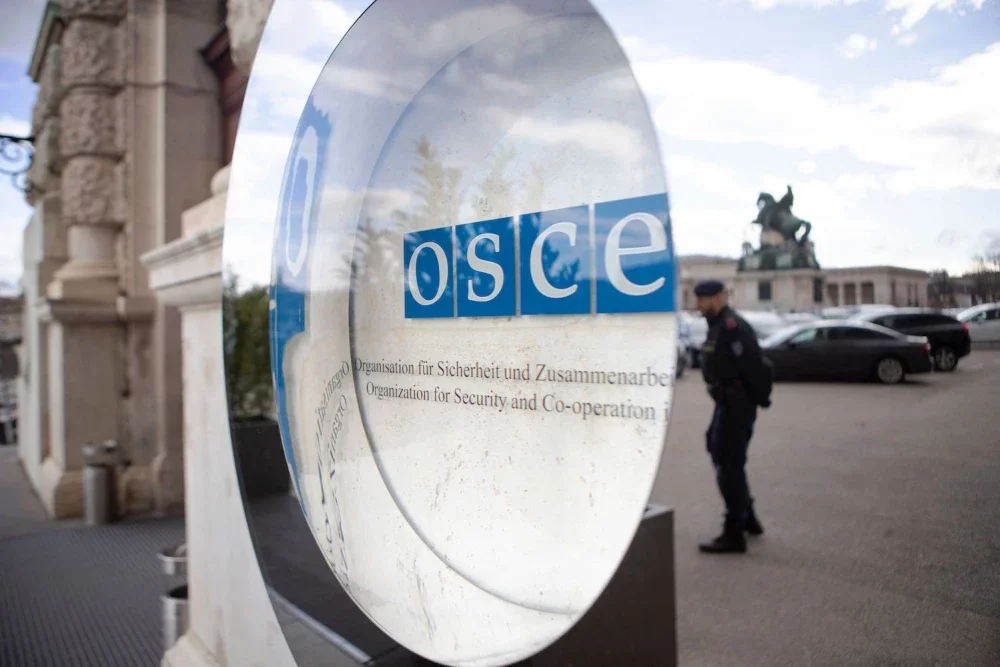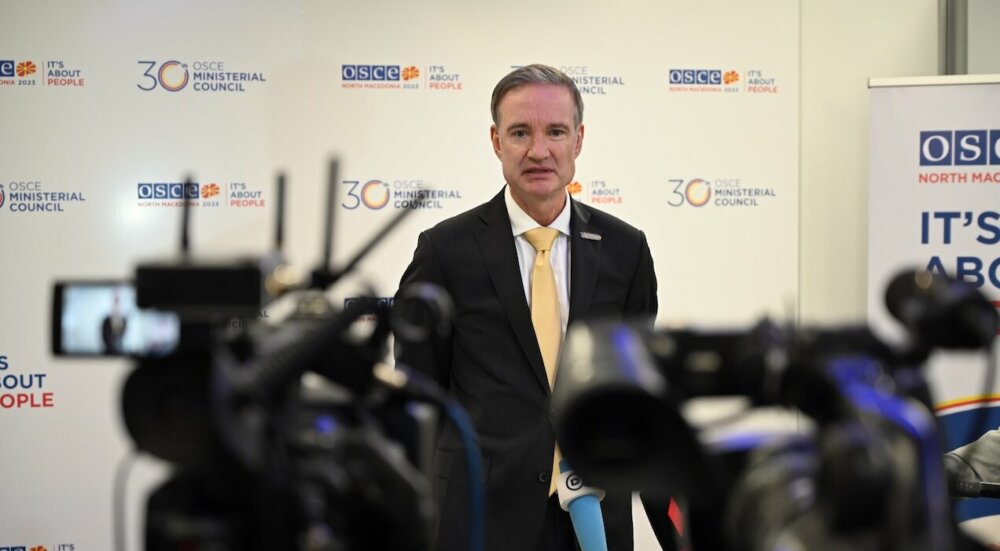Photo: Belarusian Telegraph Agency

Interview with Ambassador Alena Kupchyna
SHR Monitor: A 2004 OSCE Ministerial Council decision defines the role of the OSCE Secretary General as “Chief Administrative Office”. This means that the OSCE Secretary General is primarily tasked with implementing decisions adopted by the 57 OSCE participating States, as well as with correctly applying Financial and Staff Regulations and Rules. The Secretary General’s role has been expanded slightly in 2006 to allow the Secretary General to raise issues at the Permanent Council and to participate in the debate, as well as in 2011 to allow the Secretary General to issue an early warning to participating States and propose fact finding missions during emerging crisis situations in the OSCE area. How do you view this mandate and would you propose a further strengthening?
Alena Kupchyna: In my opinion, the current mandate of the OSCE Secretary General (SG) is quite broad, as it entrusts him or her with a number of important political and managerial responsibilities. It opens broad opportunities for any holder of the SG position to ensure an efficient management of the Secretariat and make a meaningful contribution to the implementation of the OSCE agenda.
The primary role of the SG is to assist the Chairmanship-in-Office and the participating States in promoting the atmosphere conducive to dialogue, especially in early warning and early action, which was stipulated by Vilnius Ministerial Council Decision No.3/11. I believe that after Vilnius the mandate of the SG provides the necessary means to be efficient with regard to all elements of the conflict cycle. The SG should be able to identify potential or emerging crises situations in a timely manner, to report to the Chairmanship-in-Office (CiO) and the participating States and then to seek, together with the CiO and upon its request, how to address a specific crisis situation. However, the main challenge here is how to make best use of the SG’s mandate, particularly in the field of early-warning and crisis prevention in the light of scarce budget resources.
SHR Monitor: What do believe are the main aspects of your career and background that make you uniquely qualified for the post of OSCE Secretary General?
Alena Kupchyna: All my professional life – 25 years of diplomatic experience – I was dealing with the issues falling into all three OSCE dimensions both on the UN level with my Geneva and New York experience and in the OSCE framework when I was Deputy Foreign Minister in charge of relations with Europe, North America and regional organizations, including the OSCE, European Union and Council of Europe. These issues include disarmament and arms control, economic cooperation and environment protection, human rights and fundamental freedoms, migration and combatting trafficking in human beings, counter-terrorism, fighting drug-trafficking and other transnational threats, investment and trade promotion.
I was involved in the preparation of the Belarusian delegations for five Ministerial Council Meetings (from 2012 till 2016). I was myself head of the delegation of Belarus to the High-Level Meeting in Helsinki in 2015 on the occasion of the 40th anniversary of the Helsinki Final Act and I participated as panelist at the OSCE Security Days in Berlin in 2016 on such an important topic as building coalitions and partnerships in combating transnational global challenges. My broad geographical portfolio back in the Ministry of Foreign Affairs of Belarus allowed me to establish broad high-ranking contacts in the majority of the OSCE participating States both ‘west’ and ‘east’ of Vienna and with many international organizations. And I speak Russian, English and French.
In terms of managerial experience, as Deputy Foreign Minister I had important responsibilities overseeing several departments in the Ministry as well as embassies and representations of Belarus. On top of that, I was responsible for financial and administrative affairs of the Ministry and the Belarusian diplomatic missions abroad. I have experience in the field of project cooperation as I was overseeing project implementation in the framework of the cross-border cooperation programmes between Belarus and the European Union as well as Eastern Partnership but also the direct project cooperation between Belarus and the OSCE.
As Deputy Foreign Minister I worked closely with the OSCE Institutions. In particular, we have developed fruitful contacts with the Office for Democratic Institutions and Human Rights and the OSCE Parliamentary Assembly on electoral issues in Belarus. We were engaged in good interaction and organized joint events with the OSCE Representative on Freedom of the Media in Belarus. I am a strong proponent of multilateralism. That means that the voice of each and every country – irrespective of its size, location or power – should be listened to and respected.
I value communication and engagement and know how to reconcile opposing opinions without imposing own views on others. I am a result-oriented person and, if selected, I will put all my experience and knowledge, all my energy and dedication to the cause of the OSCE and to strengthening this Organization. What I could bring to the Organization, my OSCE, is O for Openness, S – for Skills, C – for Competence and E – for Engagement.
SHR Monitor: Where do you see the main role for the OSCE in the next years?
Alena Kupchyna: The OSCE is the most inclusive and comprehensive security organization in the Euro-Atlantic and Eurasian area, which has a great potential that is still largely untapped. It provides a unique forum for dialogue promoting mutual understanding and co-operation. Over the years, it has developed a unique body of commitments and accumulated extensive expertise. It has a specific mandate based on the concept of comprehensive security.
The OSCE has also a unique toolbox that distinguishes it from other international organizations. The current crisis of European security demands from us to reinvigorate the spirit of dialogue, to reduce tensions, to build bridges and to foster mutual understanding. I believe that the OSCE can and should be the platform for rapprochement and generating common approaches in all dimensions of security as well as catalyst for effective actions to address security threats and challenges. The OSCE therefore is the most appropriate forum for an inclusive dialogue on current and new threats and challenges in the politico-military field in the region, which should ultimately restore confidence and curb the risks of a new military confrontation in Europe.
The OSCE is indispensable for building partnerships in combatting transnational threats and challenges – terrorism, migration, human trafficking. The OSCE could effectively contribute to a better connectivity in a wider sense with a view to fostering economic cooperation, building bridges between and among countries, reaching the goal of a genuine security community for all participating States.
The OSCE should also serve as a framework for a constructive and mutually respectful dialogue on human dimension issues which would further promote human rights and fundamental freedoms. I see the OSCE as a relevant, modern and efficient Organization that serves the needs of all participating States and interests of every citizen of our countries. It should make a real difference for the sake of security and cooperation in Europe and beyond.



Comments
* Your email address will not be published